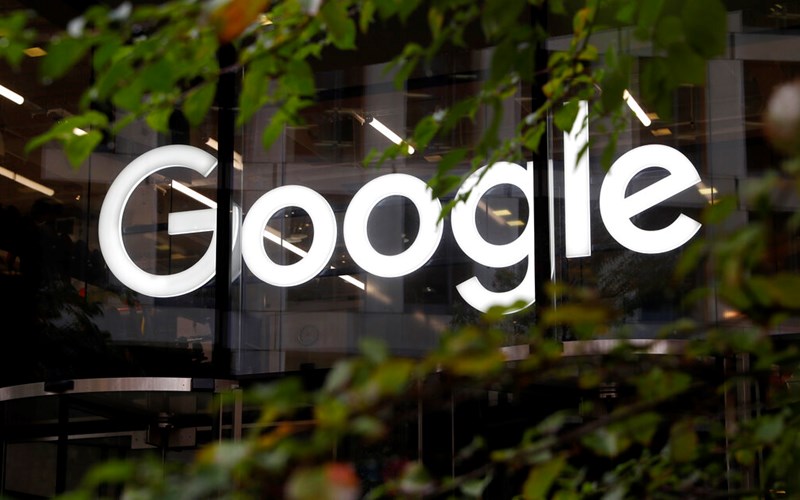Now a report by the Media Research Center finds the answer to that can often be "No" – at least not without a great degree of difficulty if the topic relates to Republican presidential candidates or other subjects not preferred by the tech giant.
According to various web sources, Google is widely considered the world's most popular search engine with more than an 88% market share since Statcounter began collecting data in 2009. The most recent data has Google with a 91.58% market share.
 It's an incredible amount of influence given to a company that, according to the report, appears to be choosing which candidates Americans can explore. MRC researchers found 41 instances of Google election interference over the last 16 years.
It's an incredible amount of influence given to a company that, according to the report, appears to be choosing which candidates Americans can explore. MRC researchers found 41 instances of Google election interference over the last 16 years.
Google's efforts to influence elections has increased in recent years, according to the MRC's report:
"Google is making good on its 2016 promise never to let conservatives win again. While its interference was first evident in 2008, its meddling has turned into an organizational mission to ensure that its candidates win on election day. Many studies reveal the results of the tech giant's commitment. In addition to the Media Research Center's studies described above, AllSides and Dr. Robert Epstein performed additional research showing how Google interfered in recent elections."
Breitbart in 2018 released leaked video of Google executives and other employees lamenting the 2016 presidential victory of Donald Trump and discussing ways to prevent future victories by conservatives.
Dan Schneider, VP of MRC Free Speech America, offered this warning on Washington Watch Thursday.
"Sometimes their efforts are behind the scenes, and sometimes it's been more overt, but one of the really dangerous things about Google is how it does it," said Schneider. "All of this censorship is behind the wall within its dark box of algorithms. When Facebook or Twitter has de-platformed people, it's been obvious to others. But Google is far more effective in doing this in secret ways."
Google's GOP information is like a ghost town
Schneider explained that MRC recently focused on presidential nomination runs for both major parties. The search results returned by Google for Robert F. Kennedy, Jr., on the Democratic side and any candidate of relevance from the GOP were next to nothing.

"When we did a search for Democrat websites, Joe Biden's campaign website was the very first search result. Marianne Williamson's search result was pretty high, too – but Google buried RFK Junior's website entirely," Schneider told show host Jody Hice. "Couldn't find it through Google.
"Even more surprising," he continued, "was what happened when we look for Republican presidential campaign websites. Google returned only two results. One again was from Marianne Williamson, a Democrat; and the other was for the one guy pulling zero percent in the polls, Will Hurd.
As for the more recognizable GOP names? "Google did not produce a campaign website for Donald Trump, for Ron DeSantis, Nikki Haley, Vivek Ramaswamy, or any other Republican. And this was consistent for months before each of these debates."
Dr. Robert Epstein, a psychologist, professor and author, told the Senate Judiciary Committee in 2019 he believed Google's election influence through various deliberate manipulations moved between 2.6 million and 10.4 million votes to Hillary Clinton in her 2016 race against Trump.
Epstein claims Google's influence amounted to six million votes for Joe Biden in 2020, The New York Post reports.
"Google News, on their links on elections, links to liberal sites 97%, 0% to conservative sites and other cultural issues. Google sways it hard to the left," Schneider said.
In conclusion
The MRC report concludes with three recommendations:
- House Speaker Mike Johnson (R-Louisiana) should direct relevant committees and committee chairmen to investigate Google for abridging people's constitutional rights; for coordinating with government to violate freedom of speech; for interfering in elections by making unreported in-kind contributions; and for defrauding its users by failing to meet its Terms of Service.
- State legislatures should resolve any question of whether Google is a common carrier, which it is; and they can follow the lead of Texas and Florida to ensure that Big Tech cannot engage in viewpoint discrimination.
- Americans should stop using Google products, particularly Google Search, and instead opt for one of the many alternatives. From MRC's research, alternatives appear to produce better, less biased results.
Given Google's market share, the third recommendation may be the most difficult to achieve, but Schneider says it can be done.
"There's a search engine that's run to be neutral called Tusk. That's a good alternative to Google. (The Tusk app can be downloaded from both Google Play and Apple's App Store, AFN has found.)
"But if you have to use Google, just know that if you really want information that's valid and good, you're probably going to have to go to the second or third or fourth page of search results. There are several state attorneys general who are fighting. There are certain members of Congress who are conducting good oversight hearings. This is a long battle that we've got to win," Schneider urged.







